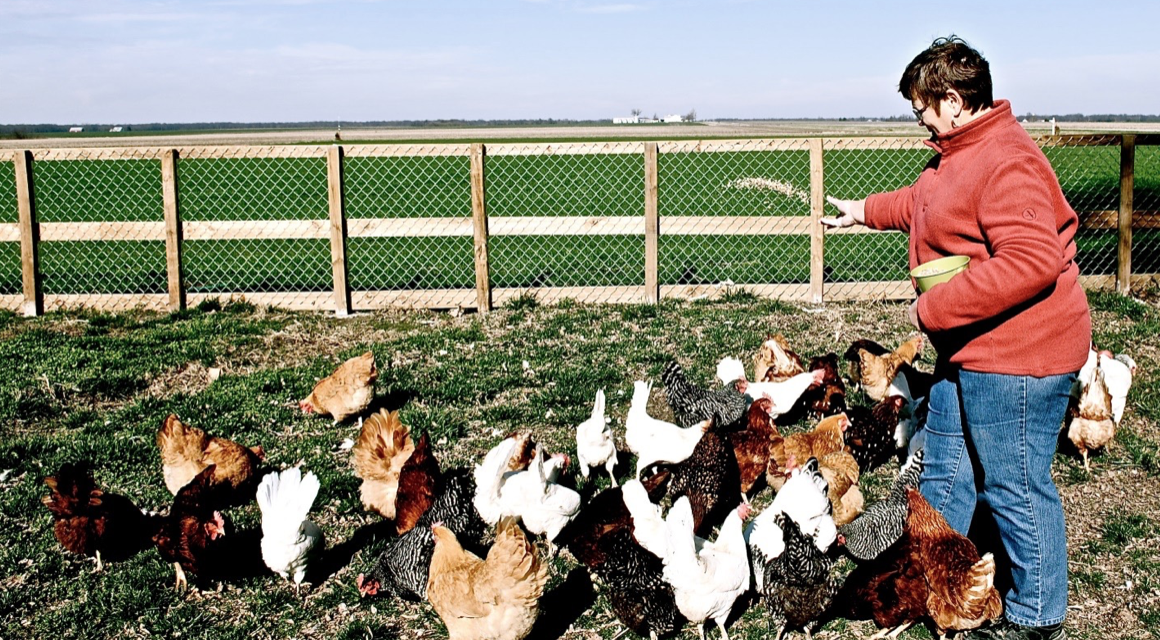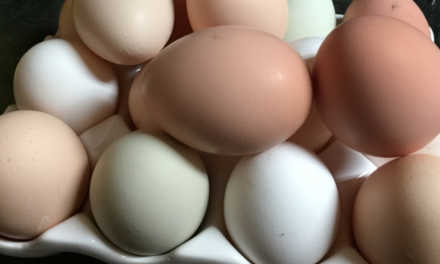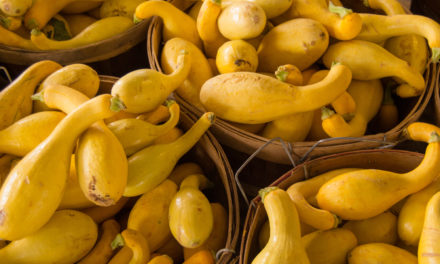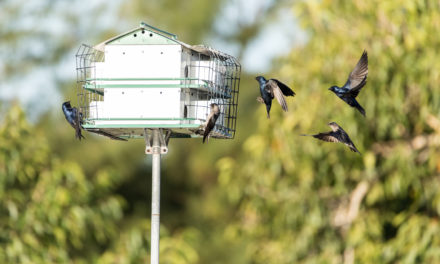 It’s the most wonderful time of the year for flocksters! As you probably know, flocksters are folks who love raising chickens. We find the freshly painted chicken tracks irresistible. We must follow the yellow chick road leading to the melodious sound of hundreds of baby chicks. Which ones are coming home with us? Will my husband (or wife) roll their eyes in disbelief when I bring home 10 more birds than we discussed because I just couldn’t make up my mind? I purchase chicks each spring to prevent an egg storage when my present flock goes into molt this fall. If you time it right, you will have fresh point of lay pullets just starting to lay eggs when the hens you purchased last spring go into molt and stop laying eggs.
It’s the most wonderful time of the year for flocksters! As you probably know, flocksters are folks who love raising chickens. We find the freshly painted chicken tracks irresistible. We must follow the yellow chick road leading to the melodious sound of hundreds of baby chicks. Which ones are coming home with us? Will my husband (or wife) roll their eyes in disbelief when I bring home 10 more birds than we discussed because I just couldn’t make up my mind? I purchase chicks each spring to prevent an egg storage when my present flock goes into molt this fall. If you time it right, you will have fresh point of lay pullets just starting to lay eggs when the hens you purchased last spring go into molt and stop laying eggs.
I purchased Speckled Sussex and Jersey Giants that took more time to mature than my usual quick to mature Cinnamon Queens and Americanas but they were worth the wait!
Which breeds are best for you? I love asking folks when I do Chicken Chats or teach at the area colleges what breed they favor. I love talking chicken as I always come away encouraged as we share our mutual love for these amazing creatures. The American Poultry Association recognizes 65 different breeds of chickens. That does not count hybrids like the Cobb 500 that Tyson foods sells in the store or one of my new favorites, the ISA Brown.
I was asked to hen-sit for an urban homesteader who is challenging her local city council to change the present wording of a law to allow urban chickens. Until the law is passed, I am caring for Steve and Penny, her two ISA Brown hens. They are flat out wonderful crooks! They are sweet, friendly, well-mannered birds that lay as dark brown an egg as any of the Welsummers I tried. They are prolific layers. They lay between 300 to 350 nice sized eggs per year. That tops my present favorite all-around layer, the Cinnamon Queens who will lay from 250 to 320 eggs a year or my flighty Brown Leghorns at between 220 to 300 eggs per year. Both the Cinnamon Queen (sometimes also called Golden Comets) and the ISA Browns are winter hardy and assimilate their food to egg ratio well. The Brown or White Leghorn are great birds for the experienced flocksters who know how to tame down the nervous, flightier Leghorn but they are a bit more work in our area in winter. That large single comb must be treated with Vaseline to prevent frost bite.
I try a new breed every year. I want to have the firsthand knowledge of a variety of chicken breeds. I have tried several dark brown egg layers, but I found out that the darkest eggs are lain by the poorest layers. To me, that means they are breeding for a negative trait so I quit adding the dark brown egg to my basket. When I move to the new homestead, I will try more breeds with feathered feet like the Cochins. I have so many wild birds that fly into my aviary, I am constantly pulling preventative maintenance to stay ahead of the mites and lice they bring to my roosts and coop. I love Brahmas but the feathered feet just makes it harder to keep them mite free even with all my dusting boxes.
I love the Wyandotte breed as well as Rhode Island Whites. I used to discourage folks from getting Rhode Island Reds as I find them a somewhat crabby breed. I must admit after taking some when my neighbor could not get them to break brood that they are a hardy excellent over all choice for the homestead.
Barred Rocks, White Rocks, Buff Orpingtons, Black Australorp, Austra Whites, Delaware, Indian River, New Hampshire, Sex Links, Dominique, Turken “Naked Necks” Ameraucana, Lakenvelder, Columbian Rocks, Welsummers, and Cuckoo Maran are some of the breeds that have been members of my many flocks. I could recommend any of the above mentioned breeds for your perusal.
If you are thinking about chickens and are on the fence about it, I have other blog posts here on a variety of topics concerning chickens for you to read. Buchheit carries only certified stock. That’s really important for your overall success with whatever breed you choose this year. Hope this will help you. I am off to look at the chicks at my local Buchheit! Pure Heaven! Be blessed! Anne May







I have an Asian Blue and she is the sweetest and calmest one of my tiny little flock of 3. The other two are Silver and Buff Wyandottes. My silver loves to let everyone know when she has laid an egg! But the Buff one likes to peck at me 🙁
Dear Angie,
So glad to hear from you! The issue with the Buff can be addressed if you want her to stop pecking you. She is displaying dominance by pecking you. Hold her and gently place your hand over her head while talking to her. Stroke her combs and wattle. That is one way to let her know you are the Alpha female. Hope that helps! Sounds like you have some great girls!